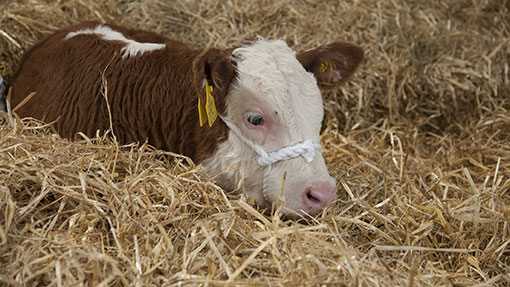New penalties hit NI beef producers

Beef farmers in Northern Ireland are furious at new penalties being imposed by processors on cattle which have lived on more than four farms.
Although the so-called residency rules have long been part of some retailers’ and food service customers’ specifications, cattle falling outside the requirement did not suffer any penalty until this summer. They may now be penalised by up to £150 a head.
“Meat plants imposed these penalties against opposition from the rest of the industry,” said auctioneer Hampton Hewitt at Markethill auction mart, Co Armagh.
“Northern Ireland is a small farming community – the average size of herd is just 16 cows and to survive farmers need to keep selling stock.”
Cattle are also required by some customers to go direct to slaughter from the final farm, on which they must have resided for at least 30 days, precluding any animals sold at auction. “We feel that the big meat players are coming together to reduce competition in the market,” added Mr Hewitt.
“We have the best traceability system in the world – these rules are totally unnecessary and just symptomatic of the way the beef industry is going: The powerful exalting pressure over those who can’t stand up for themselves. It’s just intolerable.”
See also: Beef price puts building plans on hold
However, Phelim O’Neill, chief executive at NIMEA, which represents meat processors in NI, said the industry had tried to encourage producers to reduce cattle residencies by paying a premium to the 95% which complied with the regulations. “But the remaining 5% out-of-spec have remained stubbornly in place.”
High-residency cattle were typically exported to mainland Europe and over the past 18 months UK beef prices had been so high that such animals had to be significantly discounted, said Mr O’Neill. “They also have to be kept separate at all stages of processing, which adds further to the costs.”
Residency rules were also in place across the rest of the UK, but very few cattle fell foul of them due to the different trading patterns in GB, he added. “We want to ensure that 100% of NI cattle are within spec to maximise their value. The 5% of high residency cattle are a drag on the overall trade – getting 100% compliance isn’t impossible, it just requires a bit more discipline.”
One of the most contentious issues was poor communication of the switch from bonuses to penalties, said Ian Marshall, president of the Ulster Farmers Union. “The debacle created is yet another example why greater consultation is required within the food supply chain on issues surrounding market specifications.”
As a result, the Livestock and Meat Commission was introducing a new Red Meat Industry Protocol to encourage greater transparency throughout the supply chain. It had negotiated a transition period until 1 January 2015, during which processors should be lenient with penalties and auction marts should start to display residency status to better inform beef finishers.
“We are calling on Dard minister Michelle O’Neill to assist the livestock markets with these changes,” said Mr Marshall. “It is now essential that processors follow up on their commitments and give the industry time to adjust going into 2015.”
